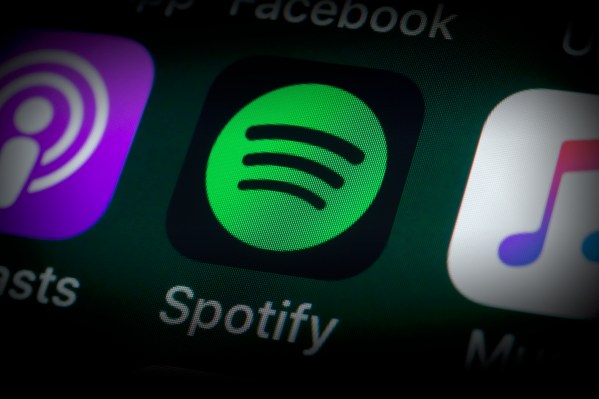Music
Trailers
DailyVideos
India
Pakistan
Afghanistan
Bangladesh
Srilanka
Nepal
Thailand
StockMarket
Business
Technology
Startup
Trending Videos
Coupons
Football
Search
Download App in Playstore
Download App
Best Collections
Technology
Robocalls have been targeting the vulnerable and unsuspecting for years, so itno surprise that the scumbags would take advantage of the current global catastrophe to enhance their scams. The FCC warns that it has received numerous reports of coronavirus-related robocall cons in the wild — herewhat to look for.
While previous robocall scams threatened IRS penalties or promised free vacations, the new ones are using both pandemic-related and personal information to make what could for some be a pretty convincing pitch. Here are a few common scams the FCC has been alerted to:
- Warnings of national quarantine or martial law — these could be trying to get you to order something or just part of a coordinated disinformation campaign
- Messages purporting to be from the WHO or charities asking for money
- Offers of free virus test kits — some of these are targeting individuals with diabetes specifically, offering a free blood sugar monitor as well
- Offering HVAC cleaning or upgrades to protect against the virus
- Promotions of various bogus products and treatments for the virus
- Asking for information to confirm a check from the government — the process for this if it happens will not be a random text message
The FCC post has some examples, including audio, of some of these scams, in case you&re wondering what it might sound like to receive a malicious HVAC solicitation.
As a general robocall rule, unknown numbers — especially from your home area code — are a red flag. Let them go to message and you can always listen later. If ita local business saying your orderready or a hospital reminding you of your appointment, they&ll say so.
Anyone asking for personal or payment info over phone, text or email is almost certainly a scammer. There is almost never any need to share this information insecurely.
Links in text messages from unknown or suspicious numbers are never to be touched. They may lead to being hacked or tracked via means hosted on the web.
Stay safe out there, and lethope the upcoming regulatory framework aimed at combating robocalls does the trick.

- Details
- Category: Technology Today
Read more: Be on guard for coronavirus robocalls, warns FCC
Write comment (90 Comments)OneWeb confirms layoffs and potential launch schedule delays amid reported bankruptcy considerations
Satellite operator OneWeb has confirmed that its workforce has been reduced via layoffs, after TechCrunch learned that it reduced its workforce by as much as 10% this week. The company did not confirm the total size of the layoff, but provided a statement to TechCrunch regarding the current state of its operations, and citing cost that it deemed necessary in light of the ongoing global coronavirus pandemic and resulting economic turmoil.
A OneWeb spokesperson provided this statement, provided in full, regarding the situation:
The OneWeb launch is going ahead on Saturday with more launches planned later in the year; however, like others, we are impacted by the global health and economic crisis and we need to dynamically adjust our workforce. Unfortunately, we think it is inevitable that there will be delays to our launch schedule and satellite manufacturing due to increasing travel restrictions and the disruption of supply chains globally. Therefore, we made the difficult decision to eliminate some roles and responsibilities as we work to focus on core operations. We are sorry to have had to take this step and we&re doing everything we can to support those affected.
This follows a report from Thursday by Bloomberg that OneWeb, which has nearly $3 billion in investment from SoftBank over its past two rounds, is considering filing for bankruptcy protection as one possible way to deal with a crunch in its available cash. Some of the highest-flying SoftBank-backed startups have faced challenges lately, precipitated in part by the high-profile reversal of co-working startup WeWorkfortunes. OneWeb did not comment on the reported bankruptcy consideration.
Bloombergreport says that it is looking at other options beyond a formal bankruptcy filing to stay afloat, but the company faces big challenges in terms of operating costs. As noted in its statement to TechCrunch, OneWeb has a launch scheduled for Saturday, which will take 34 of its satellites to space aboard a Soyuz rocket taking off from Kazakhstan. That will put its total constellation at 74 satellites, including a batch of 34 that were launched earlier this year, and six that went up last March.
OneWeb aims to provide high-bandwidth communication services using low Earth orbit satellites, with a focus on rural and other areas that are hard-to-reach for terrestrial networks. It faces competition from companies including SpaceX, which has launched 302 Starlink satellites for its own network to date, and Amazon, which has yet to launch any spacecraft, but is planning a similar offering under its own Project Kuiper.

- Details
- Category: Technology Today
As society comes to grips with the growing worldwide crisis related to the COVID-19 virus, many companies are stepping up in different ways. Today, two major tech companies — Amazon and IBM — each announced programs to encourage developers to find solutions to a variety of problems related to the pandemic.
For starters, AWS, Amazoncloud arm, announced the AWS Diagnostic Development Initiative. It has set aside $20 million, which it will distribute in the form of AWS credits and technical support. The program is designed to assist and encourage teams working on COVID-19 diagnostic issues with the goal of developing better diagnostic tooling.
&In our Amazon Web Services (AWS) business, one area where we have heard an urgent need is in the research and development of diagnostics, which consist of rapid, accurate detection and testing of COVID-19. Better diagnostics will help accelerate treatment and containment, and in time, shorten the course of this epidemic,& Teresa Carlson wrote in the companyDay One blog today.
The program aims to help customers who are working on building diagnostics solutions to bring products to market more quickly, and also encourage teams working on related problems to work together.
The company also announced it was forming an advisory group made up of scientists and health policy experts to assist companies involved with initiative.
Meanwhile, IBM is refocusing its 2020 Call for Code Global Challenge developer contest on not only solving problems related to global climate change, which was this yearoriginal charter, but also solving issues around the growing virus crisis by building open-source tooling.
&In a very short period of time, COVID-19 has revealed the limits of the systems we take for granted. The 2020 Call for Code Global Challenge will arm you with resources […] to build open source technology solutions that address three main COVID-19 areas: crisis communication during an emergency, ways to improve remote learning, and how to inspire cooperative local communities,& the company wrote in a blog post.
All of these areas are being taxed as more people are forced to stay indoors as we to try to contain the virus. The company hopes to incentivize developers working on these issues to help solve some of these problems.
During a time of extreme social and economic upheaval when all aspects of society are being affected, businesses, academia and governments need to work together to solve the myriad problems related to the virus. These are just a couple of examples of that.

- Details
- Category: Technology Today
Read more: AWS, IBM launch programs to encourage developers solving COVID-19 problems
Write comment (91 Comments)Google announced on Twitter today that it was cancelling its annual I/O developer conference out of concern for the health and safety of all involved. It will not be holding any online conference in its place either.
&Out of concern for the health and safety of our developers, employees, and local communities — and in line with recent ‘shelter in place& orders by the local Bay Area counties — we sadly will not be holding I/O in any capacity this year,& the company tweeted.
This is not a small deal, as Google uses this, and the Google Cloud Next conference, which it has also canceled, to let developers, customers, partners and other interested parties know about what new features, products and services they will be introducing in the coming year.
Without a major venue to announce these new tools, it will be harder for the company to get the word out about them or gain the power of human networking that these conferences provide. All of that is taking a backseat this year over concerns about the virus.
The company made clear that it does not intend to reschedule these events in person or in a virtual capacity at all this year, and will look for other ways to inform the community of changes, updates and new services in the coming months.
&Right now, the most important thing all of us can do is focus our attention on helping people with the new challenges we all face. Please know that we remain committed to finding other ways to share platform updates with you through our developer blogs and community forums,& the company wrote.

- Details
- Category: Technology Today
Read more: Google cancels I/O developer conference in light of COVID-19 crisis
Write comment (100 Comments)
Spotify is opening its podcast catalog to third-party apps. The company this week launched a new version of its Podcast APIs that makes it possible for third-party apps to connect to Spotify in order to manage a userpodcast library, search its podcast catalog and fetch detailed information and podcast shows and episodes, the company says.
The launch is significant as it taps into the wider developer community to help Spotify grow its podcast user base. More importantly, it offers access to Spotifyexclusive shows outside of Spotifyown app for the first time.
Spotify, like many streaming providers, has begun to use the term &podcast& loosely. To Spotify, the name simply means an audio program, presented in an episodic format. But originally, the word was meant to refer to audio episodes made available over the web using the open format RSS.
Appleown Podcasts app, despite its majority market share, never changed what a podcast was by putting select shows behind some sort of paywall, membership or paid subscription.
But Spotify (and other newcomers like Luminary), have done exactly this. In Spotifycase, it acquired technology startups designed to help people create and manage their podcasts, as well as a number of podcast networks — including The Ringer, Gimlet and Parcast — which put out some of the industrytop shows. The investments in the podcast-streaming side of Spotifybusiness helped boost podcast listening on its service by 200% last year, and have paved the way for the company to generate additional revenue through better-targeted ads.
Today, many of Spotify700,000-some podcasts are exclusive to its service. That means if you want to listen to them, you have to join Spotify.
Unfortunately for podcast listeners, it also means you had to use the Spotify app to stream these shows, instead of your otherwise preferred third-party podcast app like Overcast, Pocket Casts, Breaker, Castro or the many others that fill the app stores.
Spotifynew podcast APIs don&t change this, sadly.
Instead, the new API is focused on podcast discovery, search and managing shows — not on streaming Spotifypodcasts, exclusives or originals through a third-party app experience.
Spotify anticipates the new features available now will be useful to apps that import shows to a userSpotify library, or for integrations with calendar apps, or social podcasting experiences to help Spotify users share what they&re listening to with their friends.
&Launching this podcast API is very meaningful for Spotify right now as we continue to delve deeper into creating value in new ways for listeners with podcasting,& the company wrote in its announcement. &We are excited to unleash the creative power of the developer community and allow the expansion of Spotify into areas we&ve yet to explore,& it said.
Prior to the launch of its new podcast API, Spotify worked with a select group of partners who were building out their external integrations in order to gain feedback. Spotify made some revisions to the design of the API and improved the developer onboarding experience as a result. However, the company says it plans to continue to work closely on the project over the next six months to refine it further as itmore broadly available.
Further down the road, it expects to highlight new apps on its developer website.
- Details
- Category: Technology Today
Read more: Spotify opens its podcast catalog to third-party apps, but not for streaming
Write comment (94 Comments)
There are nearly 2,000 corporate venture capital (CVC) firms in existence, many hundreds of them created by first-time investors, according to Global Corporate Venturing.
As GCV also reports, last year alone, CVCs raised $41 billion in investment funds, mostly from their corporate parents.
Given Merck Global Health Innovation Fund(Merck GHIF) track record, I&m often asked as a long-time successful CVC investor to describe the business strategies used to ensure our scale and staying power. Merck GHIF is the digital health corporate venture capital arm of pharmaceutical giant Merck - Co. Merck GHIF was founded in 2010 with an initial allocation of $125 million. Today ita $500 million evergreen fund, and we&ve invested $800 million in more than 50 companies to date.
The four key strategies
No. 1: Developed an independent LLC with a defined investment charter
From the beginning, we set up an independent business structure with a well-defined investment charter. We created our investment model, strategy and expectations to ensure strategic and financial balance. As a seasoned corporate VC leader coming from Johnson - Johnson, I knew that there was not a corporate parent who says itokay to lose money. I knew that if we lost money as a fund, we&d be out of business.
- Details
- Category: Technology Today
Read more: Corporate venture business strategies that work
Write comment (92 Comments)Page 1152 of 1418

 17
17





